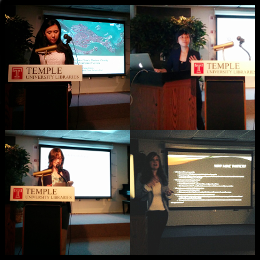By Angele M. Cirucci
Posted on behalf of Peter Logan, Director, Center for the Humanities at Temple
In May 2014, the first group of students in the new Digital Humanities Scholars Program presented their final projects to librarians and interested scholars in Paley’s Lecture Hall. The projects were impressive and sparked an animated discussion. Yet at the beginning of the year no one knew how the DH Scholars Program would work, or even if it would work, least of all me. This is the story of that first year and of the library’s role in making it a success.
I created the DH Scholars Program at CHAT because of the urgent need among Temple graduate students who are conducting research at a time when humanities materials are widely available in digital form but who lack programmatic instruction in techniques of digital analysis.
Applications were accepted in September 2013 for the first cohort, and we selected six from a large pool to work with for the year. The group represented a heterogeneous set of programs: Anthropology, Art History, English, Landscape Architecture, and Media and Communication.
I approached Delphine Khanna, Temple’s Head of Digital Library Initiatives, for help working with the group. I had attended a workshop over the summer by her and Matt Shoemaker, also in Digital Library Initiatives, on managing a DH project. Delphine proposed offering a series of workshops for the DH Scholars. She and Matt were developing workshops on basic DH topics, and the DH Scholars group gave them an opportunity to pilot the workshops at a scale that was small and manageable, before offering them more widely.
Some students began with clearly defined projects, while others knew what materials they wanted to work with and needed guidance shaping a viable project. All needed technical instruction, including familiarization with the range of tools available for analyzing texts, images, and places, and they needed a broader sense of the digital humanities as a field, including its history and the different components that fit under that umbrella term.
We met bi-weekly for the year as a group, with individual consultations at key points in the student’s progress. Our meetings alternated guest lectures from Temple faculty, on topics like text encoding and information visualization, with the library workshops. Each one involved a presentation on basic concepts, followed by a hands-on exercise for students to discover directly what each program had to offer. Matt and Delphine supplemented them with set office hours to consult with the students.
The first workshop was on Omeka, a program to publish collections, such as archives and interpretive exhibits, online. The workshop used it as a means to introduce students to the data life cycle and explain why it is important to separate your data from presentation. They followed this one month later with a workshop on Textual Analysis and Voyant, a suite of tools allowing users to explore a textual corpus using computer algorithms.
In spring, Matt and Delphine reprised their workshop on project design—essentially, how to structure and manage a discrete DH project. Katherine Lynch, also from Digital Initiatives, introduced students to programming, using Processing to demonstrate the different types of data, such as integers, floats, and arrays. Matt and Delphine finished the series with a fifth workshop on GIS, in which students learned how to plot data using Google Fusion to map London crime based on online court records from Old Bailey Online.
In the group’s final meeting, we reviewed the year, and most students noted that they developed their projects in the workshops. By learning what was possible, they were able to apply it productively to their research materials. As a result, all six students ended the year with successful projects which they can develop further over time as their data increased. For half of the students, these projects will become part of their dissertations.
The final projects were:
1. A digital model demonstrating the growth of charity hospitals in early modern Venice:
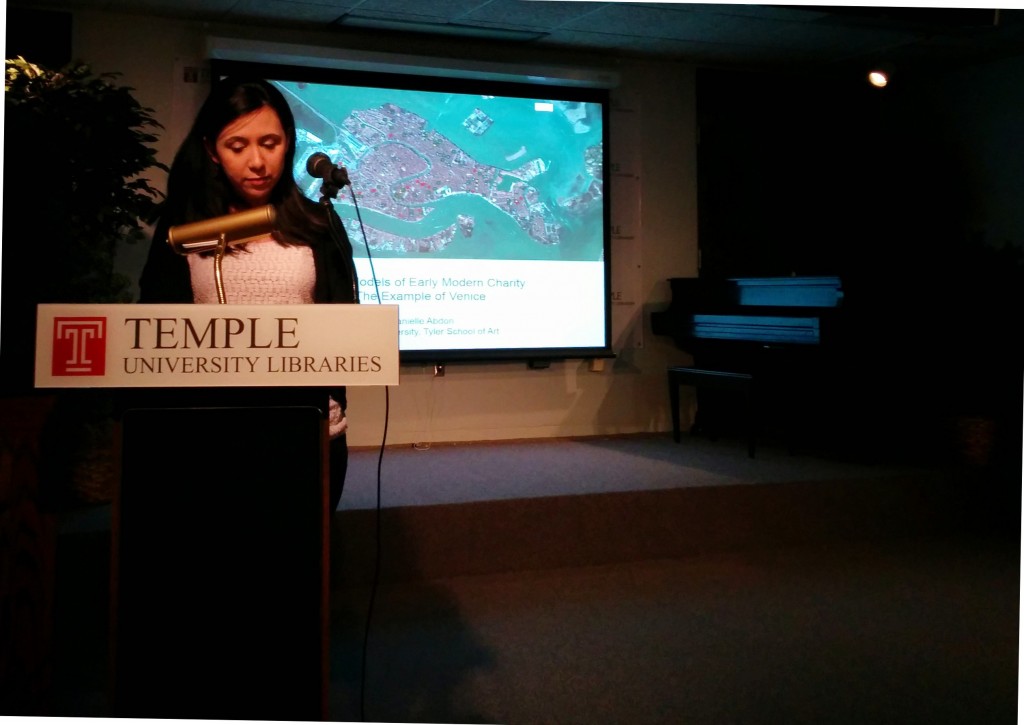
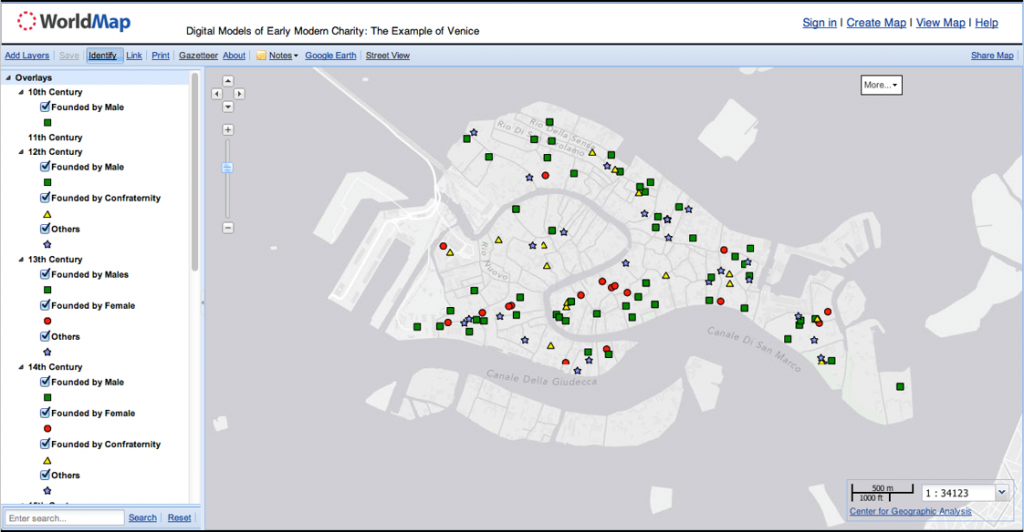
2. An Omeka-based gallery of art created with biological materials.
3. A collaborative forum for visual anthropologists:
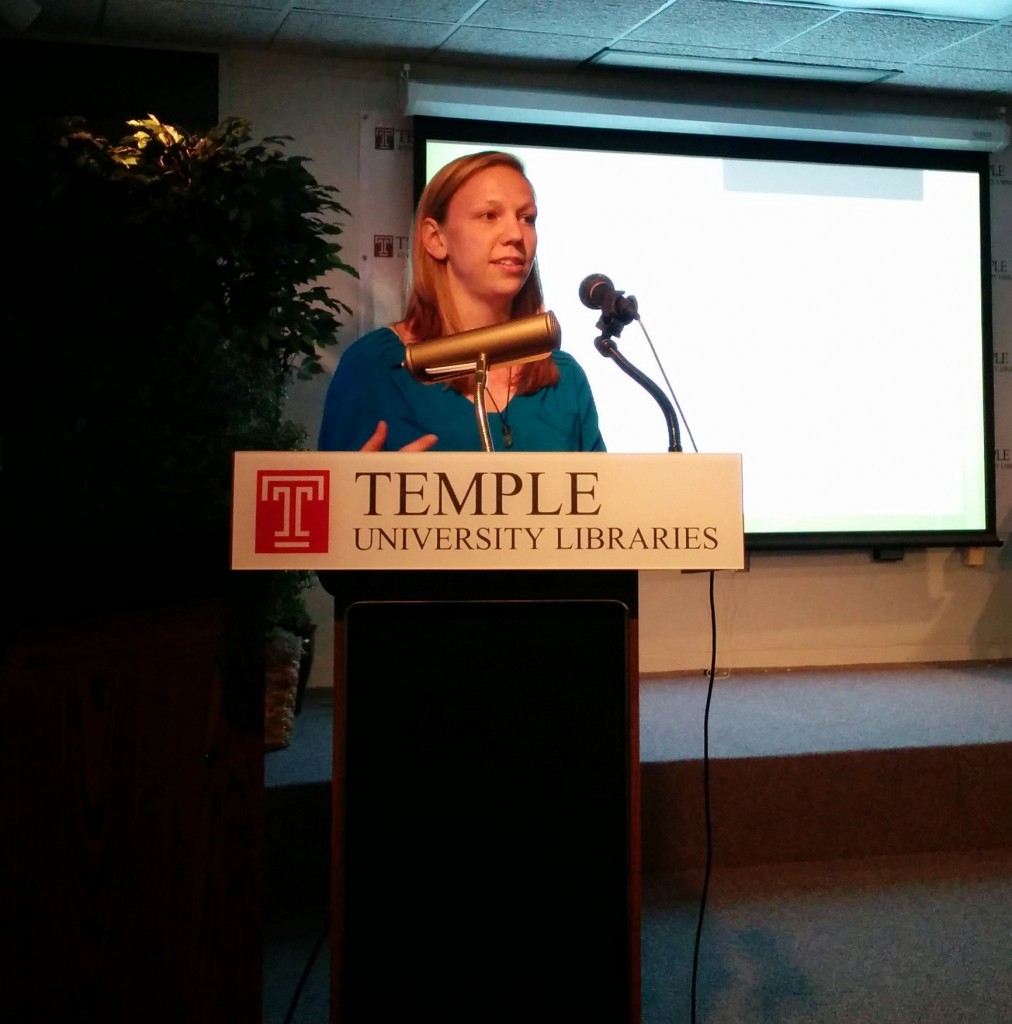
4. An online explanation of how Facebook shapes the digital identity of users:
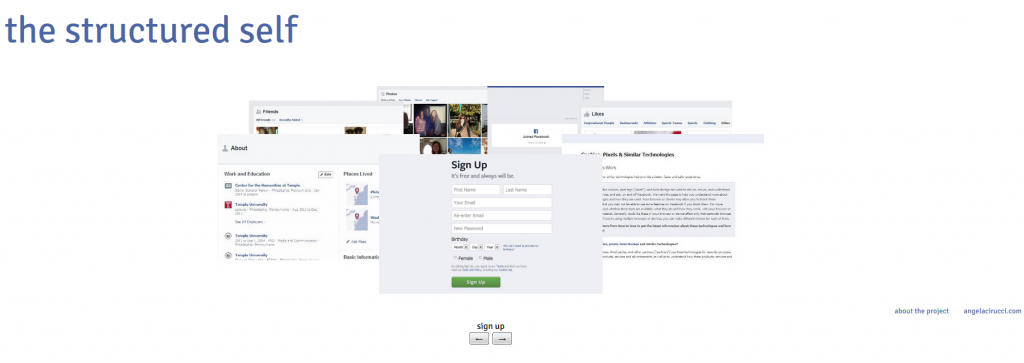
5. An Omeka-based design portfolio for Landscape Architecture (MLArch) students.
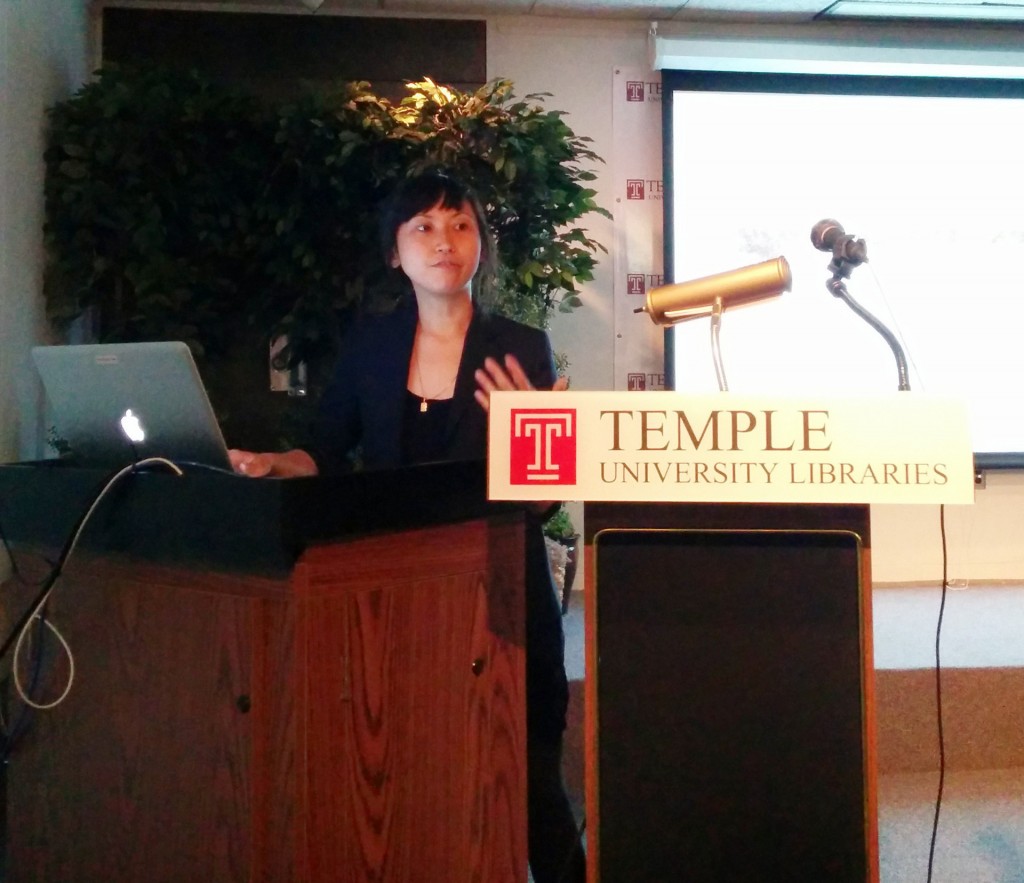
6. A quantitative analysis of hundreds of published endings to Dickens’s unfinished novel, The Mystery of Edwin Drood:
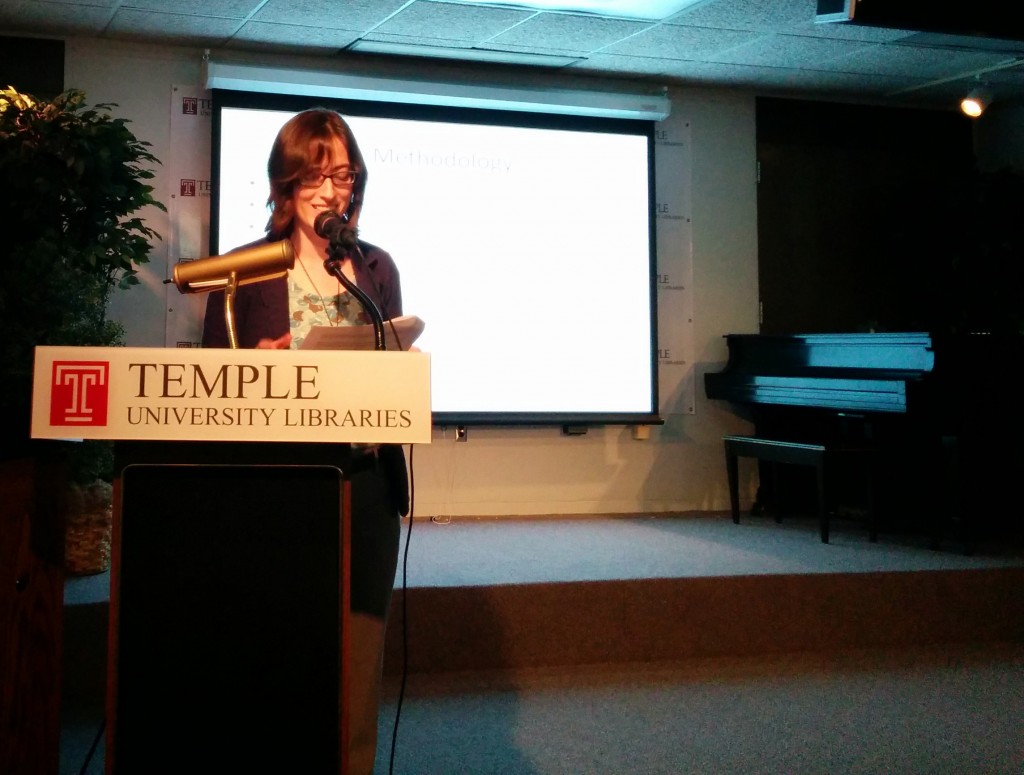
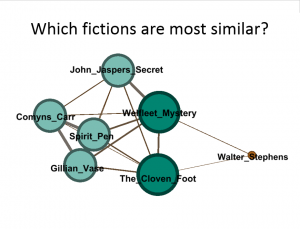
Posted on behalf of Peter Logan, Director, Center for the Humanities at Temple
